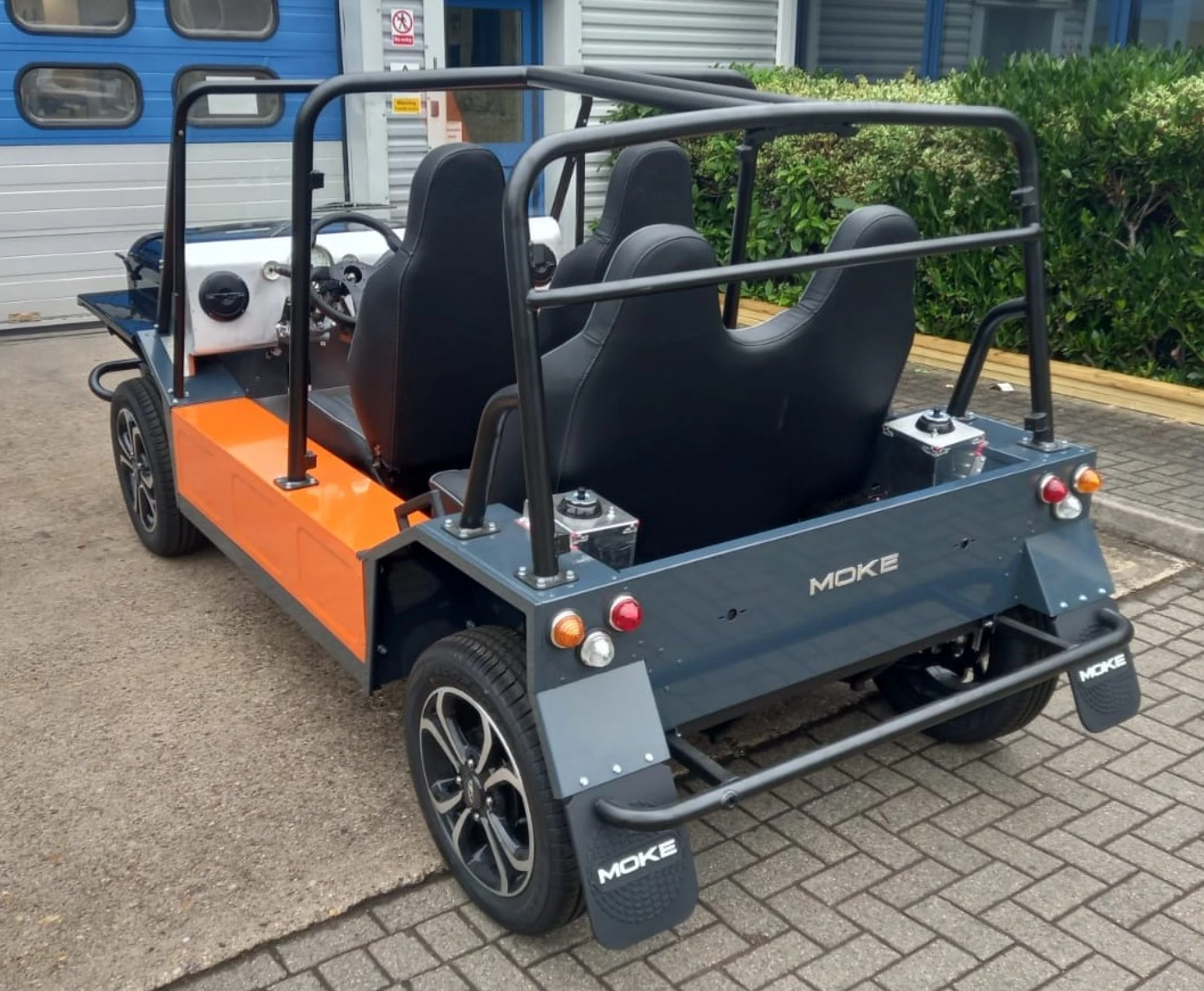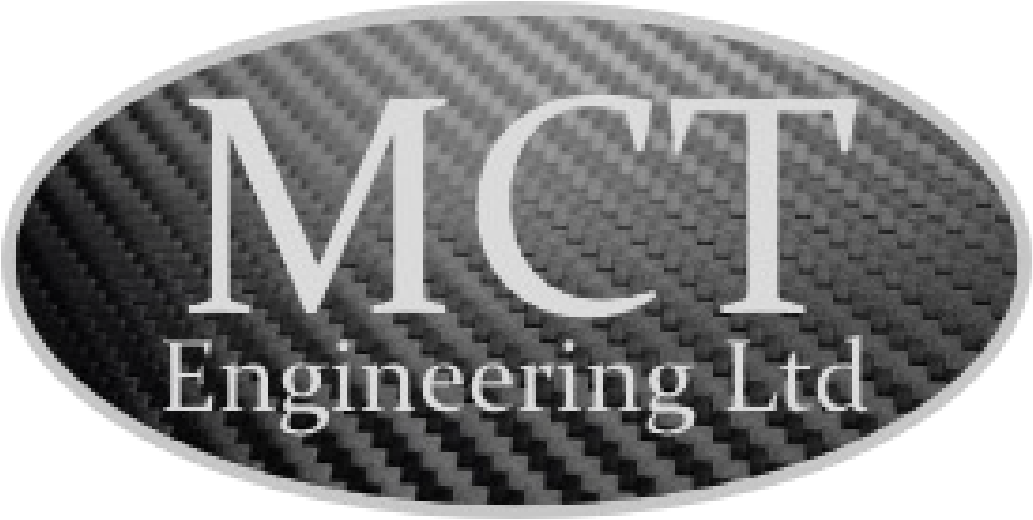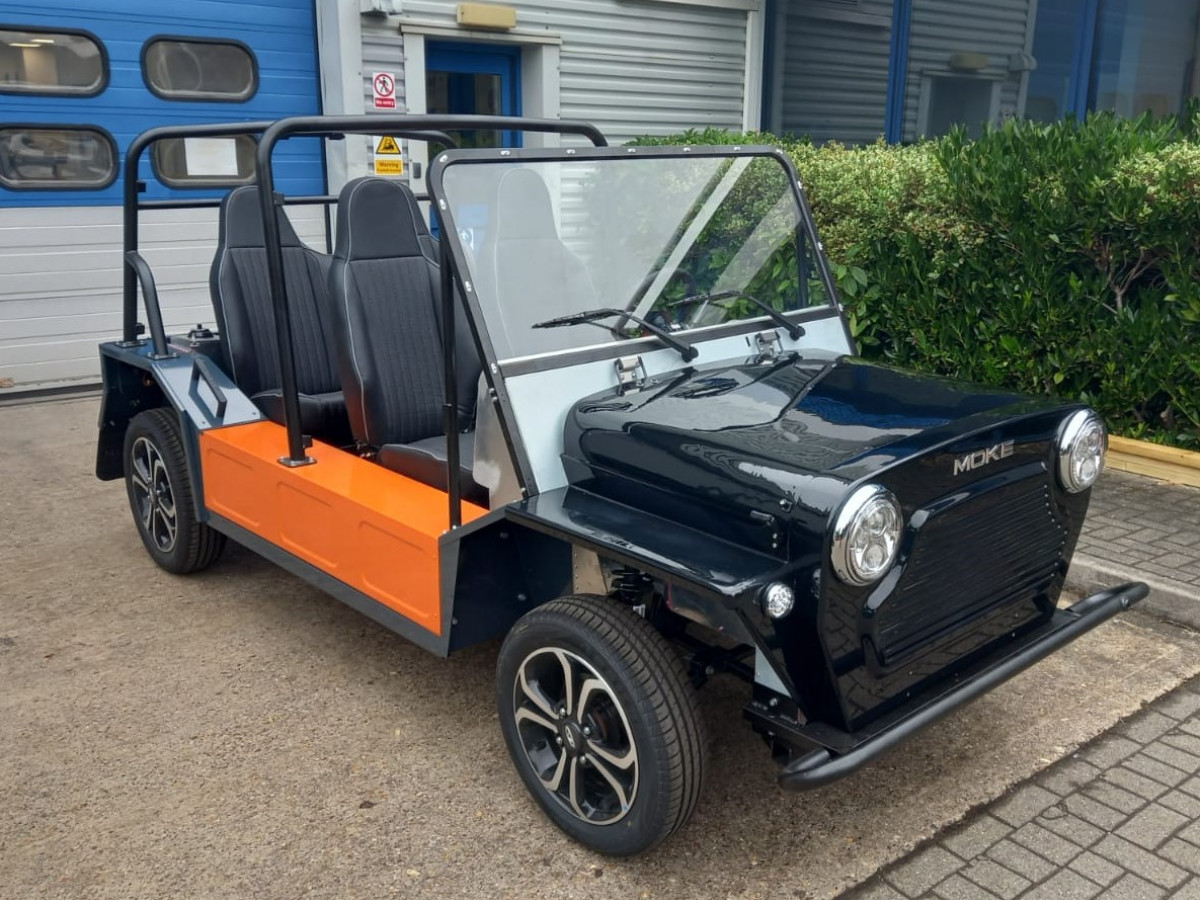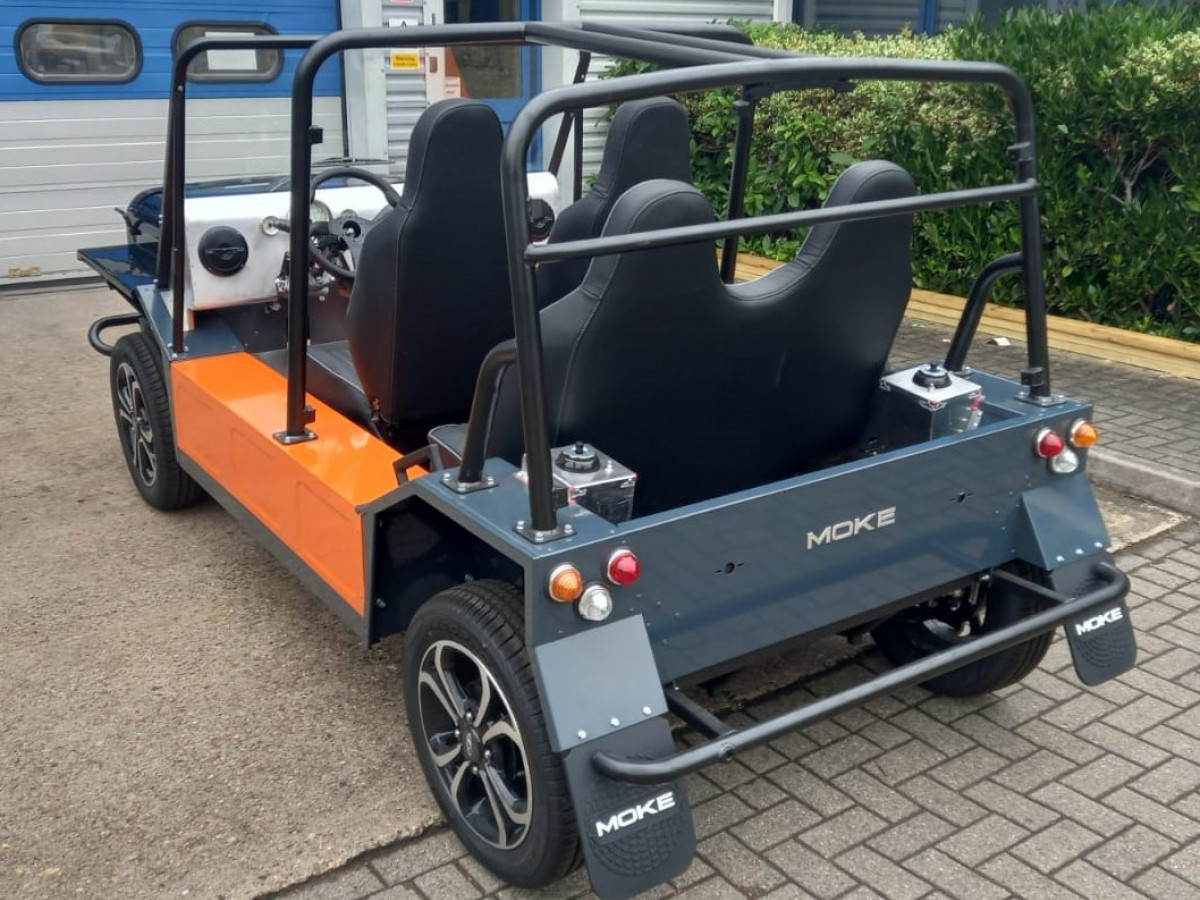Moke
The aim of the project was to develop a chassis and body structure utilising cutting edge materials used in the niche vehicle industry to create a class leading, sustainable, safe and lightweight monocoque for the new Moke Electric vehicles.

Project Overview
The primary challenge was to develop a lightweight vehicle with a total maximum weight of 450 kg (excluding the battery), with a secondary goal to reduce the BOM costs for the coloured body by circa 50%.
The project team has successfully produced a complete prototype vehicle using lightweight simplified aluminium components and self-coloured ABS body panels, assembled using self-jigging monobolt rivets and structural adhesives.





Technology
The main technological focus was on vehicle architecture and delivering an ultra-lightweight chassis and body structure. Self-coloured, recyclable ABS panels were developed using a cardboard sandwich material, reducing the BOM costs. A structural H shaped battery was packaged within the chassis, with a significant amount of the of the structural componentry located within the battery housing, linked to a lightweight floor plan.
Route to market
A proposal is in place to continue the development of the Gen2 Moke vehicle chassis through to production with a target volume of circa 3,000 units per annum, and a target introduction date of 2024.
ARC V, MCT and Fablink have gained significant experience and understanding working with sustainable composites and biomaterials and the partners are looking to work on other similar projects for other customers.

Future Commercial Opportunities
The project has led to further commercial opportunities for the project partners. ARC V will be supplying the ARC electric motorbike to the first customer in Q3 2022, which utilises and implements sustainable material learnings from this project. Fablink are starting a new business called Streamline focusing on hybrid bodies, and MCT have already secured contracts with several other customers due to the experience they have developed through the project.
Importance of NVN funding
Securing NVN funding was crucial in allowing the project the flexibility required to explore concepts, ideas and materials. Furthermore, the output of a vehicle prototype using new lightweight materials and processes has enabled the project to demonstrate capabilities and provides Moke with the confidence to progress commercially in future.

